Utilizing all the tools in her creative arsenal,
Maria Nissan is Assyrian visual artist that seeks to combat plastic pollution by bringing understanding,
awareness, and action to the catastrophic plastic waste situation in the
Kingdom while also mitigating its effects on the environment.
اضافة اعلان
In March, the
artist was named the winner of
UNHCR Jordan’s Recycling Competition
titled “Young Women Taking Actions on Climate Change through Recycling”.
According to Nissan, her nomination came as a surprise, and she was excited to
be recognized as a woman acting on climate change through recycling.
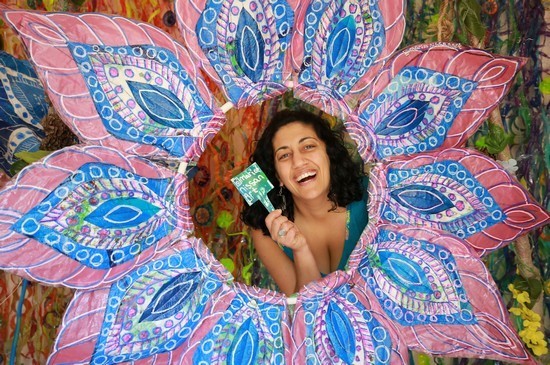 Maria Nissan, an environmental activist and artist, poses for a photograph with one of her art pieces created from plastic waste collected from the streets, in the Jordanian capital Amman, on May 17, 2022. (Photo: AFP)
Nissan,
Maria Nissan, an environmental activist and artist, poses for a photograph with one of her art pieces created from plastic waste collected from the streets, in the Jordanian capital Amman, on May 17, 2022. (Photo: AFP)
Nissan, who moved
to Jordan a few years ago, transforms plastic trash into art in a way that
challenges Jordanians’ consumer behavior regarding their role in the daily
generation of waste, This new art form, which is integrated with activism, is
called artivism.
Her most recent
works include large colorful flower installations made of used collected
plastics such as hookah pipe hoses.
“I took it upon
myself to scour cafes, especially on Rainbow Street, for pipe hoses and
discarded lighters. At one café, up to 200 plastic shisha pipes are used and
thrown away on a daily basis,”
Nissan added.
Nissan highlighted
that waste consumption, especially for a female artist, is frowned upon and
might be used to discredit her.
People should feel shame when they experience my work, knowing that they contribute to the discarding of plastic.
“As a woman, you
can’t help but feel the discrimination and pre-conceived judgments against you.
I have been living in Jordan for three years now and still get unwanted
attention for the way I look, dress, and carry myself, though my attire is
respectful of the culture. Sometimes it gets to you, but winning the
competition was an affirmation and a confirmation, especially from the UNHCR,
which is an international corporation,” she said.
However, the
social stigma is not an issue unique to
Nissan. She highlighted that working
with waste, in all capacities, is a job often shunned by the public. Yet,
Nissan continues to harness her fears as an environmentalist to excel as an
artist. She also inspires individuals to rethink and take conscious actions in
their lives.
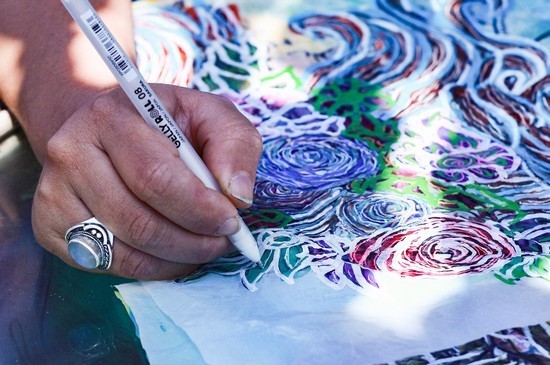 Maria Nissan, an environmental activist and artist, works on one of her art pieces created from plastic waste collected from the streets, in the Jordanian capital Amman, on May 17, 2022. (Photo: AFP)
Maria Nissan, an environmental activist and artist, works on one of her art pieces created from plastic waste collected from the streets, in the Jordanian capital Amman, on May 17, 2022. (Photo: AFP)
Art is the way to
go when it comes to environmental activism, she said.
“Art is a
universal language that everyone understands. When people experience art, they
come back with observations, questions, and feedback. This is how conversations
start, and people become empowered. But it’s not only about the metaphor: it
shows people that by buying a piece of recycled art, they are reducing waste
creation by a considerable amount.”
Nissan’s works
have character, a special cadence that makes them instantly recognizable. Her
artistic touch invites consumers to normalize the purchasing of recycled
products and push it into the mainstream.
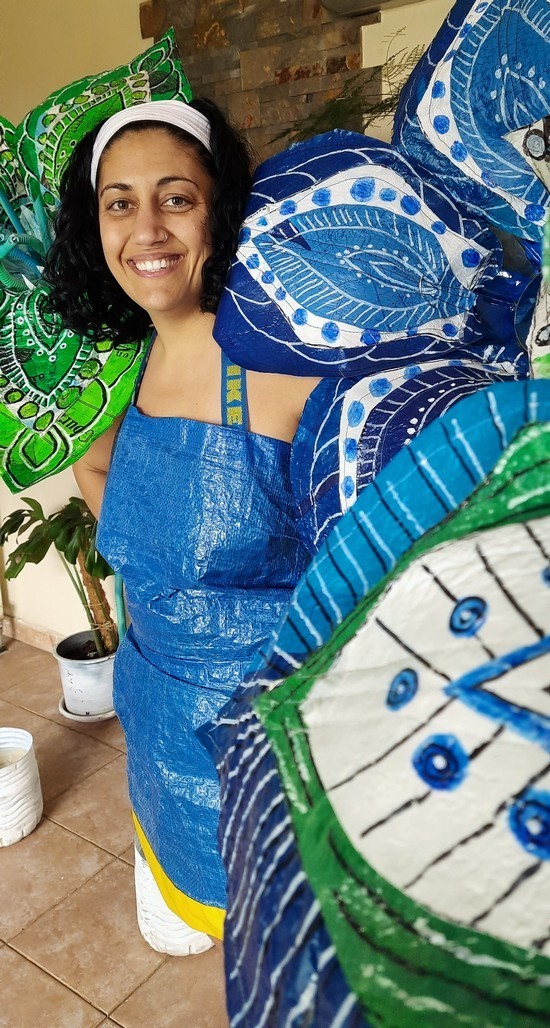
By doing so, the
time and energy taken to maintain the production of sustainable art are
rewarded through financial support that ensures that artists in the field can
continue creating, thus breaking the cycle of consumerism while creating a cycle
that welcomes repurposing waste.
Around 14 million
tonnes of plastic are thrown into oceans annually, a fact that pushed Nissan to
use waste collected in Aqaba in her instillations. “A one-time water bottle
used for ten minutes or less can take up to 410 years to degrade into
microplastics, inevitably resulting in nanoplastics entering fetuses’ lungs and
placenta,” she explained.
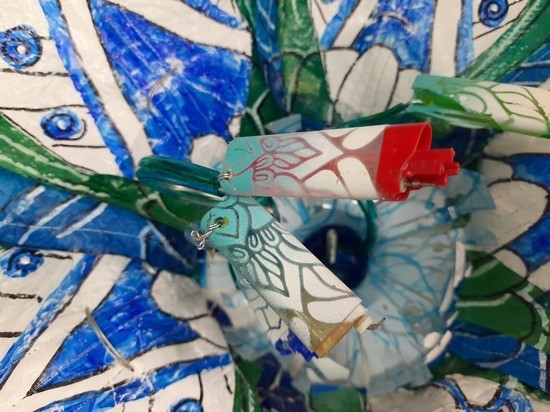
Nissan’s work has
been displayed at several galleries and festivals, including the Recycle Art
Festival in 2021, where she collaborated with other artists to give abandoned
banners and placards from Jordan’s parliamentary elections a new lease of life.
Her installation was named “Plastic Ocean” to highlight the negative impact of
plastic on Jordan’s ecosystems and biodiversity — marine life in particular.
Her installations
are also large, sized between three to five meters; this “serves to make people
feel small standing next to them, urging them to realize the actuality of the
waste problem at hand.”
“People should
feel shame when they experience my work, knowing that they contribute to the
discarding of plastic,” Nissan said.
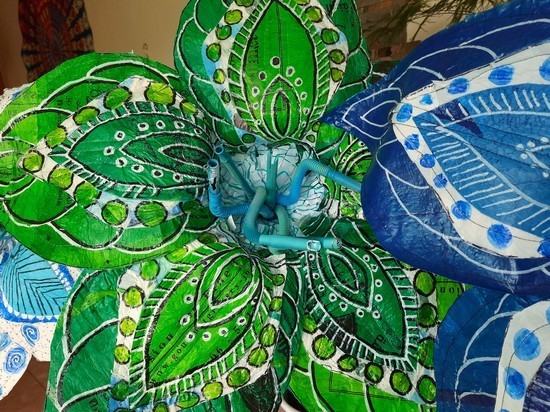 MicroPlasticsJo
MicroPlasticsJo is
Nissan’s sustainable home decor store launched in 2021, exclusively selling
products made from recycled plastic bags. Jordanians can get recyclable wicker
baskets and coasters which would otherwise be abandoned plastic bags polluting
the city.
Read more Culture and Arts
Jordan News





